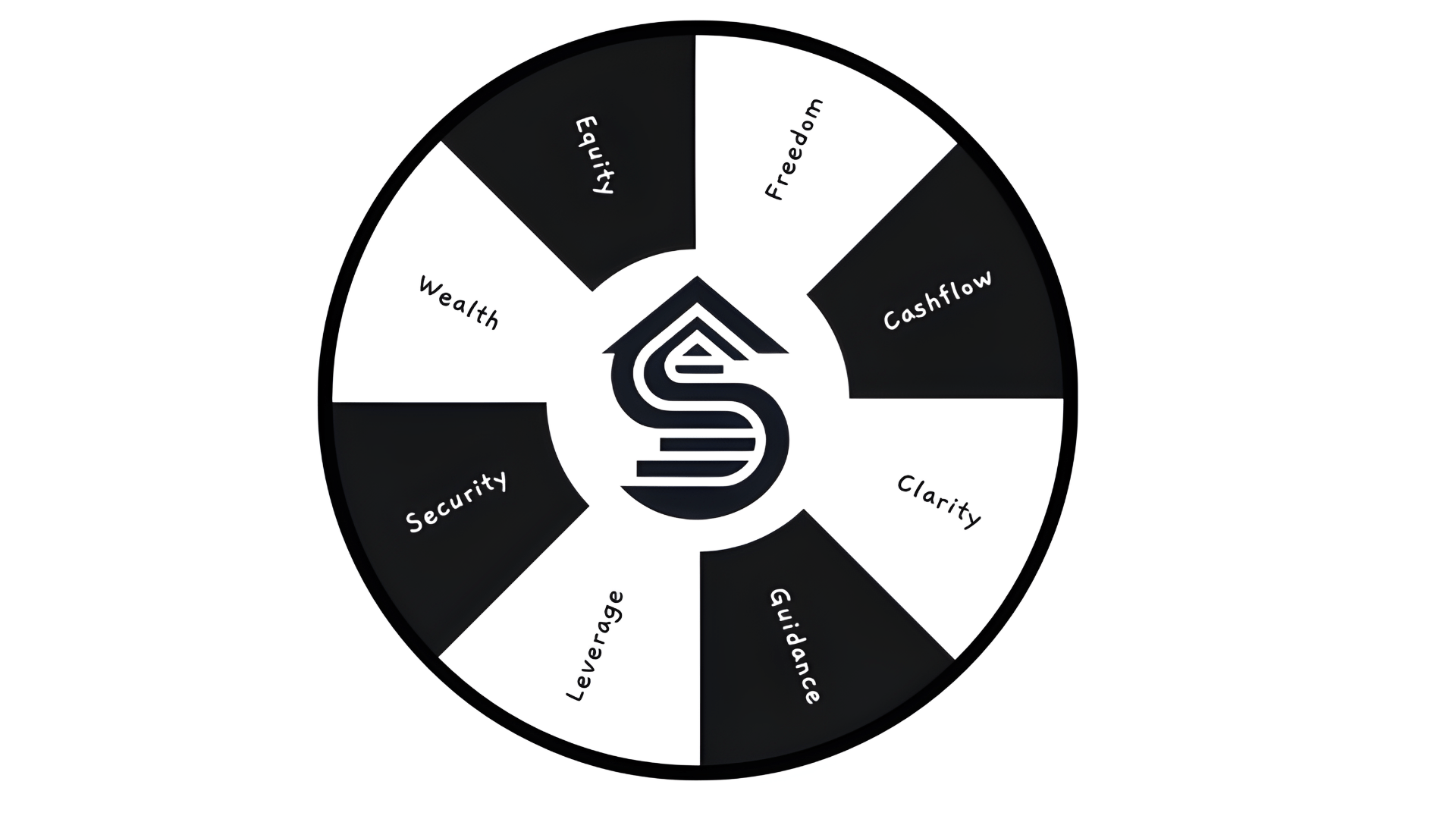1099 Loan Purchase: IT Consultant Buys First Investment Property in Under 30 Days

Educational Case Study Disclosure
This case study is hypothetical and for educational purposes only. Scenarios, borrower profiles, loan terms, interest rates, and outcomes are illustrative examples and do not represent current offers or guaranteed terms.
For specific details including down payment requirements, closing cost estimates, interest rate details, closing cost breakdowns, payment calculations, cash-to-close estimates, or an official Loan Estimate, it is highly recommended you schedule a meeting with one of our licensed mortgage advisors.
Learn more:
- 1099 loan purchase Reg Z advertising requirements (§1026.24) – CFPB official regulation
- 1099 loan purchase Reg Z full text and compliance – Electronic Code of Federal Regulations
- Official 1099 loan purchase advertising interpretations (§1026.24) – CFPB interpretations
- 1099 loan purchase MAP Rule (Reg N) mortgage advertising – Mortgage advertising rules
- NMLS Consumer Access – Verify 1099 loan purchase lender licensure
Actual loan terms vary by credit profile, property, occupancy, location, market conditions, and lender guidelines. For current options tailored to you, schedule a consultation or apply online.
Ready to explore your options? Schedule a call with a loan advisor.
Discover How a 1099 Loan Purchase Made Real Estate Investing Possible for a Self-Employed Professional
Marcus T., a 38-year-old independent IT consultant based in Fort Lauderdale, earned strong six-figure income annually from multiple long-term 1099 clients. After years of working in corporate IT before transitioning to independent consulting, he was ready to build passive income through real estate investing before turning 40—with a deliberate long-term vision of acquiring five rental properties by age 45 to create generational wealth for his family.
His wealth-building strategy extended far beyond just owning investment property. Marcus envisioned a portfolio of cash-flowing assets that would eventually fund his children’s college education, provide financial freedom to pursue passion projects without depending solely on consulting income, and build an estate that could support future generations. He understood that starting in his late thirties would give him decades for appreciation, mortgage paydown, and rental income to compound into significant wealth.
Despite healthy cash flow from his thriving consulting business, excellent credit with spotless payment history, and substantial savings for an appropriate down payment and reserves, Marcus faced an unexpected obstacle when he approached traditional lenders: his tax returns told a completely different story than his bank account. Like most financially savvy independent contractors, Marcus’s accountant had structured his business to minimize tax liability through legitimate deductions. Those same deductions that saved him considerable tax dollars annually now made his tax returns show dramatically lower income than he actually earned.
Marcus had identified the perfect first investment property—a three-bedroom, two-bathroom single-family home in Fort Lauderdale’s rapidly growing Flagler Village neighborhood. The property met all his investment criteria: strong rental demand from young professionals, excellent long-term appreciation potential in a gentrifying area, manageable renovation needs, and projected rental income that would comfortably cover all expenses while generating positive cash flow. He was ready to execute on years of planning, education, and preparation. However, three traditional lenders couldn’t see past his reduced tax return income to approve his purchase.
Facing similar challenges? Schedule a call to explore your options.
The Challenge: Why Traditional Lenders Rejected This IT Consultant Three Times
Marcus approached three conventional lenders within two weeks, confident that his strong financial position would make approval straightforward. His bank account showed consistent, healthy deposits from multiple long-term corporate clients—companies he’d been consulting for over several years. His credit score was excellent with spotless payment history across all accounts. He had saved substantial funds for the down payment and maintained strong cash reserves well above typical lender requirements. Yet all three lenders delivered the same frustrating verdict: insufficient income based on tax returns.
How Do Traditional Lenders Evaluate 1099 Income for Purchase Loans?
Traditional mortgage lenders focus exclusively on taxable income shown on tax returns rather than actual deposits or earning capacity. They require two years of complete tax returns including all schedules, then calculate qualifying income based on adjusted gross income after business deductions. For self-employed borrowers and independent contractors, this approach creates a fundamental disconnect between actual earning capacity and what appears on tax return documents.
The problem was straightforward but maddening. Marcus’s tax returns showed significantly reduced adjusted gross income after legitimate business deductions for high-end computer equipment, specialized software subscriptions, home office expenses, professional development and certifications, vehicle expenses for client meetings, technology upgrades, business insurance, and other operating costs. These weren’t questionable deductions—they were standard, appropriate business expenses that any competent accountant would recommend to minimize tax liability legally.
Why Did Marcus’s Smart Tax Strategy Prevent Purchase Approval?
“I make great money, but my tax returns made me look broke,” Marcus explained. “I had substantial deposits coming in consistently every month from three major corporate clients I’d worked with for years. My accountant structured my business to minimize taxes through legitimate deductions—exactly what independent contractors should do. But traditional lenders couldn’t see past the reduced income showing on my Schedule C. They were using a number that reflected my tax efficiency, not my actual earning power.”
The qualification gap was substantial and devastating. Marcus needed sufficient financing to purchase the investment property he’d carefully researched and identified, but traditional lenders said he could only qualify for significantly less based on his taxable income. That qualification shortfall meant he couldn’t move forward with acquiring the property or begin building the rental portfolio he’d been strategically planning for years.
What Was at Stake Beyond This Single Property Purchase?
“I was frustrated because I’d worked hard to build my consulting business, save substantial reserves, improve my credit to excellent levels, and research investment properties thoroughly,” Marcus said. “I was ready to execute my wealth-building plan. I had the income, the savings, the credit, and the perfect property identified. But I couldn’t get past the income verification hurdle with conventional financing. Every rejection felt like being penalized for being financially smart about taxes.”
This wasn’t just about missing one investment opportunity. Marcus had calculated that starting his portfolio at age 38 would give him seven years to acquire five properties by age 45—his target timeline. Each year of delay meant less time for appreciation, less equity buildup through mortgage paydown, and less compounding of rental income. Missing this property could push his entire five-property timeline back by months or years while he searched for another comparable opportunity.
How Did Time Pressure Intensify Marcus’s Challenge?
With interest rates stable but economic indicators suggesting potential increases ahead, Marcus felt the window closing. The Flagler Village property was already attracting multiple offers from other investors who recognized the neighborhood’s gentrification potential. Marcus had saved appropriate down payment funds and had strong reserves ready, but couldn’t get approval to compete for the property.
The emotional toll extended beyond frustration. Marcus had done everything conventional wisdom suggested—built a successful business, maintained excellent credit, saved diligently, educated himself about real estate investing, and prepared financially. Now he faced the possibility that optimizing his tax strategy would derail the very wealth-building plan those tax savings were meant to support.
Experiencing similar rejection? Schedule a call to discuss alternative qualification methods.
The Discovery: How Marcus Found 1099 Loan Programs
After his third rejection within two weeks, Marcus pivoted from conventional lending to researching alternative financing options specifically designed for self-employed borrowers and independent contractors. He discovered 1099 loan programs through a real estate investor forum where another IT contractor shared a remarkably similar success story—multiple rejections from traditional lenders followed by quick approval using actual 1099 income documentation rather than tax returns.
What Made Marcus Skeptical After Three Conventional Rejections?
Initially skeptical after three conventional lender rejections, Marcus hesitated to believe another financing approach would work differently. He’d heard promises before, only to face the same income documentation wall. But the referral came from someone in his exact situation—a fellow independent IT contractor who also invested in real estate and faced identical tax return challenges. The specificity and similarity of the situation convinced Marcus to schedule one more consultation.
Marcus scheduled a call with a loan advisor specializing in alternative documentation mortgages for 1099 contractors and self-employed professionals. He expected another explanation of why his situation “didn’t work” for mortgage lending guidelines. Instead, he discovered a fundamentally different approach to income evaluation.
How Do 1099 Lenders Evaluate Income Differently Than Traditional Lenders?
During the consultation, the advisor explained how 1099 lenders evaluate gross income before business deductions rather than taxable income on tax returns. This approach recognizes the reality that independent contractors and self-employed professionals legitimately reduce taxable income through appropriate business deductions while maintaining strong actual earning capacity. The 1099 loan approach would allow Marcus to qualify based on his actual earnings from consulting contracts rather than the artificially reduced income showing on his tax returns after legitimate business write-offs.
The key difference was profound: instead of using the reduced adjusted gross income showing on Marcus’s Schedule C, 1099 lenders would review his actual 1099 forms showing his gross earnings from each client, verify those deposits in his bank statements over an extended period, and apply a standard expense ratio to calculate his qualifying income. The focus shifted from tax strategy to earning capacity.
What Was Marcus’s “Aha Moment” About This Solution?
“That conversation changed everything,” Marcus said. “For the first time, someone looked at my real income instead of just my tax forms. The advisor explained that 1099 lenders would review my actual 1099 forms showing my gross earnings, verify the deposits in my bank statements, and apply a standard expense ratio to calculate my qualifying income. It wasn’t about my tax strategy—it was about my actual earning capacity. This wasn’t just solving a documentation problem—it was opening the door to my entire real estate investment strategy. It finally made sense.”
The advisor also explained that 1099 loan programs work particularly well for independent contractors with consistent income from the same clients over extended periods—exactly Marcus’s situation. His three long-term corporate clients, some spanning several years of continuous consulting work, provided the income stability and predictability that 1099 lenders seek, even though the income came through 1099 forms rather than W-2 wages.
How Would This Approach Unlock Marcus’s Wealth-Building Timeline?
Marcus learned that he could qualify for financing based on his gross 1099 income rather than his reduced taxable income, potentially unlocking significantly more purchasing power—enough to actually acquire the investment property he wanted rather than settling for something less ideal or delaying his plans indefinitely. The program recognized that 1099 contractors structure their finances differently than W-2 employees to optimize tax efficiency, but still have real, verifiable income and stable business relationships.
More importantly, if this financing strategy worked for property #1, Marcus could use the same approach for properties #2, #3, #4, and #5 without fundamentally changing how he structured his business or managed his taxes. He wouldn’t need to sacrifice tax efficiency to build his investment portfolio. This realization transformed his perspective from viewing the challenge as an insurmountable obstacle to seeing it as discovering the right financial tool for his specific situation as an independent contractor.
The Solution: 1099 Loan Approval Process and Documentation
Marcus worked closely with his loan advisor to assemble the required documentation for his 1099 loan purchase application. Unlike traditional mortgages requiring two years of complete tax returns with all schedules scrutinized for every deduction, the 1099 loan program focused on his actual income documentation from consulting contracts, verified through both 1099 forms and corresponding bank deposits.
What Specific Documentation Did Marcus Provide for His 1099 Loan Purchase?
Documentation provided:
- Extended period of 1099 forms showing consistent income from three long-term corporate clients
- Business bank statements verifying deposits matched 1099 income amounts over substantial timeframe
- Current year-to-date profit and loss statement prepared by his accountant showing business profitability
- Excellent credit score with spotless payment history across all accounts
- Appropriate down payment for investment properties saved and verified in bank accounts
- Strong cash reserves exceeding lender requirements for the loan type
- Letters from two major clients confirming ongoing contract relationships and projected future work
- Executed purchase contract for investment property showing attractive rental potential
- Rental market analysis demonstrating strong income potential for the Flagler Village neighborhood
- Evidence of property research and investment strategy planning
How Long Did the 1099 Loan Purchase Approval Process Take?
The approval timeline:
- Initial consultation (Day 1) — Discussed income documentation strategy, investment property goals, and portfolio vision with loan advisor
- Pre-qualification assessment (Day 2) — Reviewed 1099 income documentation and estimated qualifying capacity based on gross earnings
- Document submission (Days 3-5) — Uploaded 1099 forms, bank statements, P&L statement, and supporting documentation through secure portal
- Income verification (Days 6-10) — 1099 lender verified gross 1099 income from each client and confirmed deposit consistency in bank statements
- Credit and asset review (Days 11-13) — Verified excellent credit score, reviewed payment history, and confirmed down payment and reserve funds
- Property analysis (Days 14-15) — Evaluated investment property’s rental income potential and neighborhood appreciation prospects
- Property appraisal ordered (Day 16) — Scheduled appraisal to confirm property value and investment viability
- Appraisal completed (Day 22) — Property appraised at purchase price, confirming favorable value
- Conditional approval issued (Day 23) — Approved pending final verification of reserves and client contract continuity
- Final underwriting (Days 24-27) — Completed all remaining conditions and verifications
- Clear to close (Day 28) — Final approval granted with all conditions satisfied
- Closing scheduled (Day 30) — Closed on investment property purchase exactly 30 days after initial application
How Did the 1099 Lender Calculate Marcus’s Qualifying Income?
The 1099 lender applied a standard expense ratio to Marcus’s gross 1099 income from his IT consulting business. Rather than using the dramatically reduced adjusted gross income showing on his tax returns after business deductions, they evaluated his actual earning capacity based on client payments documented through 1099 forms and verified through corresponding deposits in his bank statements over an extended period.
This calculation method resulted in significantly higher qualifying income—sufficient to purchase the investment property Marcus had identified and move forward with his portfolio building strategy. The consistent deposits from the same corporate clients over multiple years demonstrated income stability despite the self-employed structure.
What Made Marcus’s 1099 Loan Purchase Application Particularly Strong?
Several factors strengthened Marcus’s application beyond just his 1099 income documentation. His excellent credit score with spotless payment history demonstrated financial responsibility and reliability. His substantial down payment funds and strong reserves showed financial cushion and preparedness for the investment. His long-term client relationships—some spanning several years—demonstrated income stability and reduced risk for the lender. And his clear, well-researched investment strategy with specific portfolio goals positioned him as a strategic investor rather than a speculative buyer.
The combination of strong actual income, excellent credit, substantial reserves, client relationship stability, and clear investment strategy positioned Marcus as a low-risk borrower despite using alternative income documentation. The 1099 lender recognized that his reduced tax return income reflected smart financial planning rather than weak earning capacity.
Ready to purchase your first investment property? Submit a purchase inquiry to discuss your scenario.
The Results: How Did Marcus’s 1099 Loan Purchase Enable His Wealth-Building Journey?
Marcus closed on his first investment property in exactly 30 days after submitting his initial application—meeting his timeline goals and securing the property before other investors could outbid him. The three-bedroom, two-bathroom single-family home in Fort Lauderdale’s Flagler Village neighborhood checked all his investment boxes: strong rental demand, excellent appreciation potential, manageable condition, and favorable rental income projections.
What Were the Final Terms of Marcus’s 1099 Loan Purchase?
Final loan outcome:
- Approved financing amount covered the purchase price with appropriate down payment structure for investment property
- Competitive interest rate given his excellent credit and strong 1099 income documentation
- Favorable long-term fixed-rate structure providing payment stability and predictability
- Manageable monthly payment that rental income would comfortably cover with positive cash flow remaining
- Timeline: Application to closing in exactly 30 days from initial submission
- Property details: 3BR/2BA single-family home, Fort Lauderdale Flagler Village neighborhood
- Expected rental income: Strong monthly amount exceeding all expenses including mortgage, taxes, insurance, and reserves
- Actual rental income: Property leased within two weeks of closing at attractive monthly rate
How Did 1099 Loan Qualification Compare to Traditional Financing Results?
Traditional financing vs. 1099 loan qualification comparison:
Qualification Factor | Traditional Lender Result | 1099 Lender Result |
Income calculation basis | Reduced taxable income after all deductions | Gross 1099 income with standard expense ratio |
Qualification amount | Insufficient for desired property purchase | Approved for full amount needed |
Tax return requirements | Two years complete returns with all schedules | 1099 forms and bank statement verification |
Business deduction impact | Severe negative impact on qualification | Minimal impact on qualification |
Client relationship value | Not considered or valued | Long-term client stability strengthened application |
Investment property goal | BLOCKED ❌ | ACHIEVED ✅ |
Portfolio expansion timeline | Delayed indefinitely | On schedule for five properties by age 45 ✅ |
Wealth-building strategy | Derailed | Launched successfully ✅ |
What Immediate Results Did Marcus Achieve After Closing?
“Without the 1099 loan program, I would have missed this property and possibly watched my entire portfolio expansion timeline collapse,” Marcus explained. “Traditional lenders wanted me to either stop taking legitimate business deductions for two years to artificially inflate my tax returns, or abandon my investment strategy entirely until I transitioned back to W-2 employment. Neither option made financial sense for my business or my long-term wealth goals. This program let me move forward without sacrificing tax efficiency or delaying my wealth-building journey.”
Marcus leased the property to a qualified tenant within two weeks of closing. The rental agreement secured strong monthly income that comfortably covered the mortgage payment, property taxes, insurance, HOA fees, maintenance reserves, and property management fees while still generating attractive positive cash flow. The property exceeded his income projections from day one, validating his research and neighborhood analysis.
How Does This Purchase Fit Into Marcus’s Bigger Wealth-Building Vision?
Marcus views this property as #1 in his five-property portfolio plan—the foundation upon which he’ll build generational wealth for his family. The rental income covers all expenses and generates profit. The property is appreciating in Fort Lauderdale’s strong real estate market. The mortgage principal pays down monthly, building equity with each payment. And most importantly, he’s positioned to acquire property #2 using the same 1099 financing approach that worked successfully for property #1.
“Now I’m 20 percent of the way to my five-property goal, with seven years remaining to acquire properties #2, #3, #4, and #5,” Marcus said. “Property #1 is building equity every month while my tenant pays down the mortgage. The property is appreciating in value in a gentrifying neighborhood. I’m generating positive cash flow that I can save toward the next down payment. And I’ve proven to myself that I can successfully manage an investment property while maintaining my consulting business. The compound effect of multiple properties building equity simultaneously while producing cash flow is exactly the wealth-building strategy I envisioned.”
What Are Marcus’s Next Steps for Growing His Portfolio?
When Marcus is ready to acquire property #2 next year, he plans to leverage the equity building in his first property using a HELOC or Home Equity Loan—allowing him to access accumulated capital for the next down payment without refinancing and potentially losing the favorable rate he locked in on property #1. This strategy will help him scale efficiently to multiple properties while preserving the competitive financing terms he’s already secured.
“The best part is understanding that this is just the beginning of my wealth-building journey,” Marcus reflected. “Right now this is rental property #1 generating passive income. In ten years, I could own five properties generating substantial combined monthly income—enough to replace my consulting income if I choose. In twenty years, these properties could be mostly paid off, generating significant cash flow for my retirement. In thirty years, this real estate portfolio becomes part of the generational wealth I pass to my children. That’s the power of starting early with real estate investing—every year compounds.”
Marcus continued: “The 1099 loan program gave me access to that wealth-building path years earlier than waiting for ‘perfect’ conventional financing would have allowed. I didn’t have to change my business structure, sacrifice tax efficiency, or delay my plans. I could start building wealth immediately, and every month that passes is another month of appreciation, mortgage paydown, and rental income adding to my net worth. That’s time I can never get back, which is why starting now mattered so much.”
Ready to get started on your first investment property? Get approved or schedule a call to discuss your situation.
Exploring Other 1099 Loan Options?
While Marcus used a 1099 loan purchase to acquire his first rental property, 1099 loan financing works for multiple scenarios:
- Need to refinance your current mortgage? See how a general contractor achieved monthly savings with 1099 loan refinance while maintaining business deductions
- Want to access equity for business or investment purposes? See how a freelance photographer used 1099 loan cash-out refinance to fund her second investment property and scale her portfolio
- View all case studies to find success stories matching your situation and wealth-building goals
Key Takeaways for Self-Employed Investors
What Can 1099 Contractors Learn from This 1099 Loan Purchase Success Story?
- 1099 loans focus on gross income before business deductions, not taxable income shown on tax returns—allowing self-employed borrowers to qualify based on actual earning capacity rather than tax-minimization strategies. This approach recognizes that independent contractors and business owners legitimately reduce taxable income through appropriate deductions while maintaining strong cash flow and earning power (IRS 1099 income reporting guidelines)
- Consistent income documentation from the same clients over extended periods strengthens applications—1099 lenders look for stable or growing income trends from repeat clients rather than perfect month-to-month consistency. Long-term client relationships demonstrate business stability and reduce perceived risk, making Marcus’s multi-year corporate client relationships a significant strength (Self-employment income verification standards)
- Strong credit scores unlock better rates even with alternative documentation—Marcus’s excellent credit helped him secure competitive pricing despite using alternative income verification. Credit quality remains a critical factor in all mortgage lending, and maintaining excellent credit maximizes options and minimizes costs
- Investment property financing requires larger down payments and stronger reserve requirements compared to primary residence purchases—proper financial planning ensures you meet these higher standards. Marcus’s substantial down payment funds and strong reserves demonstrated readiness for investment property ownership
- Think beyond the single transaction and view each property as one step in a larger wealth-building strategy—successful investors like Marcus don’t focus on just one rental; they build portfolios of cash-flowing properties that compound over time. Marcus’s goal of five properties by age 45 demonstrates strategic thinking about building generational wealth through real estate. Each property becomes a building block for subsequent acquisitions, with equity from earlier properties funding down payments for later ones
- Starting early maximizes compounding effects of real estate investing—purchasing property #1 in his late thirties gives Marcus decades for appreciation, equity buildup through mortgage paydown, and rental income to compound into significant wealth. Every year of delay means less time for compounding, which is why finding the right financing solution now rather than waiting mattered so much for Marcus’s long-term financial goals
Have questions about qualifying with alternative documentation for your first investment property? Schedule a call with a loan advisor today.
Alternative Loan Programs for Self-Employed Real Estate Investors
If a 1099 loan purchase isn’t the perfect fit for your situation, consider these alternative financing options:
- Bank Statement Loan – Qualify using personal or business bank deposits over extended period, ideal for business owners with strong cash flow
- DSCR Loan – No income verification required; property cash flow qualifies the loan for true passive investing
- Asset-Based Loan – Qualify based on investment portfolios and liquid assets rather than income
- Portfolio Loan – Finance multiple properties efficiently as you scale your investment portfolio
- Stated Income Loan – Alternative income documentation options for unique situations and non-traditional income structures
Explore all loan programs to find your best option.
Want to assess your complete financial picture and explore your wealth-building path? Take our discovery quiz to clarify your goals and next steps.
Helpful 1099 Loan Purchase Resources
Learn more about this loan program:
- Complete 1099 Loan Purchase Guide – Detailed requirements, rates, and qualification guidelines for purchasing with alternative income documentation
- 1099 Loan Payment Calculator – Estimate your qualification based on your 1099 income and see potential purchasing power
Similar success stories:
- How a general contractor achieved monthly savings with 1099 loan refinance – Rate reduction success story while maintaining tax efficiency
- Freelance photographer accesses equity with 1099 loan cash-out refinance – Using home equity to fund second investment property
- View all case studies – Browse by your journey stage and profession
External authoritative resources:
- IRS 1099 Income Reporting Guidelines – Official guidance on 1099 income documentation and reporting requirements for contractors
- Self-Employment Income Verification Standards – Industry guidelines for alternative documentation and income qualification
Ready to get started?
- Apply online – Start your purchase application today
- Schedule a consultation – Discuss your specific investment strategy with a loan advisor
- Take the discovery quiz – Deep dive into your financial goals and investment timeline
Need local expertise? Get introduced to trusted partners including investment-focused loan officers, realtors, property managers, and contractors in your area.
Disclosure: NEXA Mortgage, LLC dba Stairway Mortgage — NMLS #1660690 • Equal Housing Lender. Applications are handled by state-licensed Mortgage Loan Originators; you will be matched with an MLO licensed in your state. Not all products are available in all states. See our Licenses & Disclosures page for state-specific information. This case study is for educational and illustrative purposes only. Scenarios, borrowers, and loan terms may be hypothetical and are used to demonstrate potential financing solutions. Not a commitment to lend. All loans are subject to credit approval, program availability, and underwriting guidelines. Interest rates, fees, loan amounts, and other terms are examples and do not represent current offers or market rates. Actual terms vary by applicant profile, property, market conditions, and lender guidelines, and may change without notice. Texas homestead cash-out refinance is limited to 80% LTV and subject to Texas Constitution, Article XVI, §50(a)(6), including a 12-day waiting period before closing. For current rates and terms specific to your situation, please schedule a consultation or apply online. NMLS Consumer Access: https://www.nmlsconsumeraccess.org/
Need a Pre-Approval Letter—Fast?
Buying a home soon? Complete our short form and we’ll connect you with the best loan options for your target property and financial situation—fast.
- Only 2 minutes to complete
- Quick turnaround on pre-approval
- No credit score impact
Got a Few Questions First?
Not Sure About Your Next Step?
Skip the guesswork. Take our quick Discovery Quiz to uncover your top financial priorities, so we can guide you toward the wealth-building strategies that fit your life.
- Takes just 5 minutes
- Tailored results based on your answers
- No credit check required
Related Posts
Subscribe to our newsletter
Get the latest insights and mortgage case studies in your inbox.






